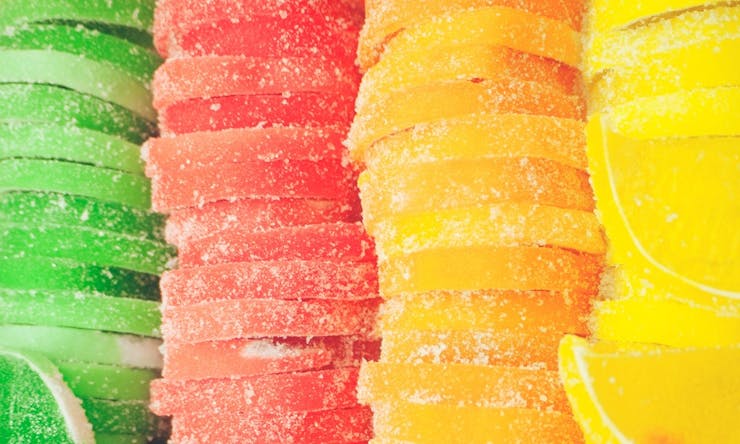UPDATE: A ban on pot-infused gummy bears and marijuana edibles that resemble fruits has passed the Colorado House.
A bill that won initial approval in the state House on Friday would ban any infused edibles shaped like fruit, animals or people.
Supporters call the effort an attempt to eradicate retail pot products that could appeal to kids. Critics pointed out that the ban doesn’t mention many other shapes, such as hearts or stars. Others pointed out that it is the job of parents to keep edible pot away from kids.
The House also gave tentative approval to bills allowing “pesticide-free” labels on marijuana, and another bill adjusting possession limits on liquid marijuana.
All the measures await final, formal votes before heading to the Senate.
Original post, published 4/21/2016:
DENVER (AP) — Infused lemon drops and other marijuana edibles that resemble fruits could be coming off Colorado shelves, the latest front in a battle by lawmakers to eradicate retail cannabis products that could appeal to kids.
A committee in the state House of Representatives advanced the bill that also would ban infused edibles shaped like animals or people. Edible makers already are preparing for new regulations starting this fall that will require each piece of food to carry a symbol with the letters THC, marijuana’s intoxicating chemical.
Marijuana manufacturers say the latest measure goes too far, with the Colorado Cannabis Chamber of Commerce warning it could shut down a big part of the edibles industry.
“It really comes down to the adult, the parent, to keep it out of the hands of children, just like alcohol, just like cigarettes,” said Dave Maggio, who works for manufacturer Cheeba Chews.
Many producers have agreed to stop making candies that resemble animals or people but oppose the bill because it could be interpreted to ban shapes that unintentionally look like fruits, such as an orange-colored circle.
The measure’s supporters, including the governor and Colorado’s chief medical officer, say marijuana candies are like modern-day candy cigarettes and send a dangerous message to kids.
“Children are more likely to consume products that resemble familiar foods,” Dr. Larry Wolk told lawmakers Tuesday.
Many of the 24 states and Washington, D.C., allowing marijuana for medical or recreational use do not allow the sale of edible marijuana.
In Colorado, where the state constitution authorizes marijuana in any form, regulators have been ratcheting up limits on edible marijuana ever since adult use became legal in 2012.
First, lawmakers limited the potency of serving sizes, then required each serving size to be individually wrapped because some consumers were eating too many servings.
A Wyoming college student fell to his death from a Denver hotel balcony in 2014 after eating six servings of marijuana in a cookie. The same year, New York Times columnist Maureen Dowd wrote of becoming sick after eating too much THC.
The ban on certain shapes of edible marijuana comes late in Colorado’s lawmaking session, which concludes next month. The bill’s chances are not clear. It has a long list of bipartisan sponsors in the Democratic-controlled House but only one sponsor in the Republican Senate.
The bill, passed 10-2 by the committee, now awaits a vote by the full House.





